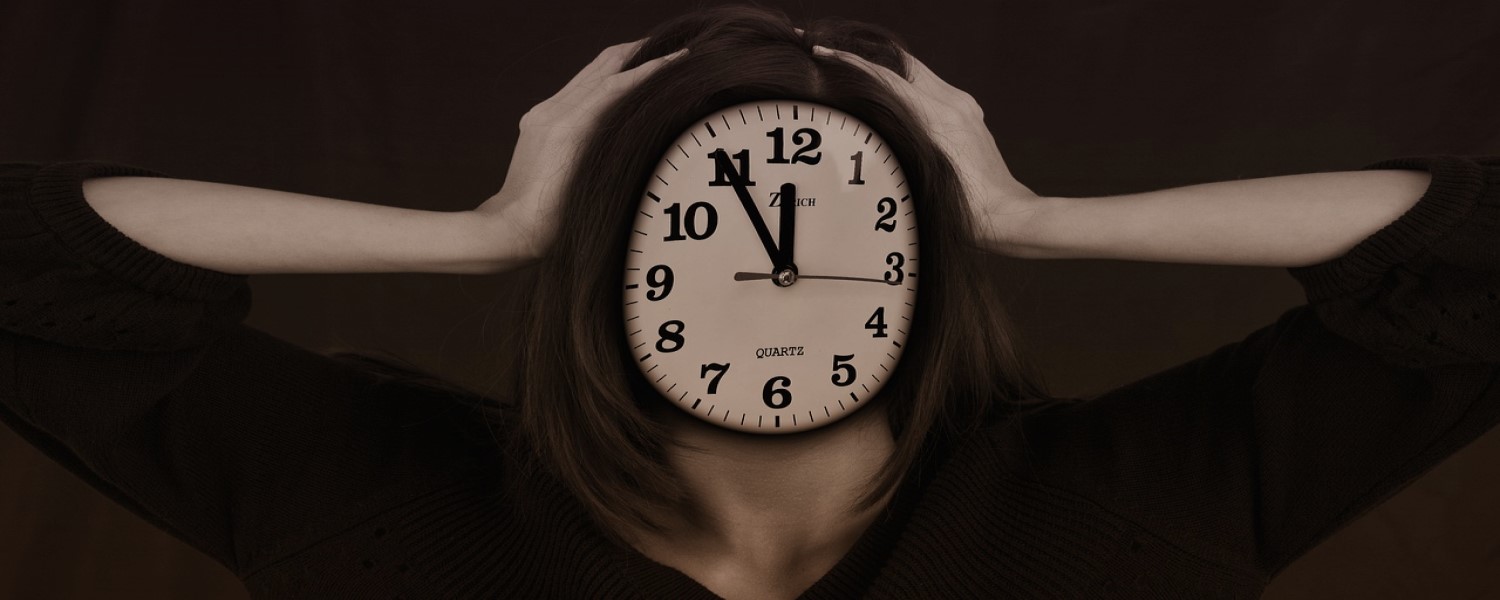This is the Best Time of Day to Do Certain Things!
For those of you who experienced the end of daylight savings time (DST) this past weekend, you may have been thrilled to get an extra hour of sleep! Personally, I was up at the same time, so it gave me an extra hour to get some good analytical work done! You see, I get my best analytical and thinking work done early as it is the best time of day for me to get that type of stuff done. And unless you are a night owl, it is likely the case for you as well, and there is a good reason for that as you will see in today’s post about the best time of day to do certain things.
By the way, the man you can thank for that extra hour of sleep in the spring and curse for that lost hour of sleep in the fall is a guy named George Hudson, who was an entomologist that first proposed DST way back in 1895 – more on him later!
What Does the Research Tell Us About the Best Time of Day?
According to Daniel Pink, who has recently come out with a new book titled “When: The Scientific Secrets of Perfect Timing.”, most people move through their day in 3 stages.
Our cognitive abilities change throughout the day and how we perform depends on what we are doing and the stage we are in.
According to Pink in an interview with NPR2,:
“Well, what you see in – like in a lot of this research and big data, you see systematically poor performance in health care settings in the afternoon. Example – the incidence of handwashing inside of hospitals dramatically drops in the afternoon. You look at colonoscopies – endoscopists find half as many polyps in colonoscopies in afternoon exams versus morning exams even with the same population – doctors more likely to prescribe unnecessary antibiotics in the afternoon than in the morning.”

What Are the Stages?
The three stages are as follows: a peak, a trough, and a recovery. People who are night owls move through the day in the opposite order – recovery, trough, peak.
Peak
The PEAK is the start of your day when you have the most energy and are most vigilant, meaning you can more easily ignore distractions. You are also in a better mood which affects your performance which makes you more suited for specific types of work. Types of work to focus on during this stage are types of analytic work which require more focus, head down vigilance and attention. So, for example – writing, coding, analyzing financial statements, analyzing data, writing reports, etc.
Trough
Next, we have the TROUGH, this is the part after lunch – the early to mid-afternoon when you have less energy and feel a bit sluggish. In fact, a lot of bad things occur in the afternoon according to Pink’s research. Firstly, lower standardized test scores for students occur during the trough. Secondly, the 2nd most dangerous time to drive (controlling for the number of cars on the road) is between 2-4 pm; the first being between 4-6 am. This means that the trough is when we are better off doing more administrative type work like emails – which we should be batching as we discussed in a previous blog post, filling out bullshit reports that no one reads, jerking around on social media, etc. Stuff that doesn’t require a lot of heavy thinking or cognitive power.
Recovery
Finally, we have the RECOVERY period in the late afternoon. This is when our mood is better than when we were in the trough, but we are less focused and attentive than when we were in the peak. This makes it perfect for tasks requiring creativity, such as brainstorming, that require continuous iteration.
Listen to This!
What really hit home for me is when Pink said on Tim Ferriss’ podcast, “the research shows that time of day explains about 20% of the variation in how people perform on cognitive tasks”. Meaning if you take two people and try to explain the difference in their cognitive ability, 20% is due to the time of day, which is huge!
Use It or Lose It: How Can You Use the Best Time of Day to Your Advantage?
It’s quite simple to make this stuff actionable, just do the following: (assuming you are a morning person, if you are a night-owl – just do them in reverse)
(1) Move your analytic work to the morning hours when you are more focused and vigilant.
(2) Do your administrative tasks in the early afternoon after lunch when your energy levels are lower and you aren’t as focused.
(3) Perform your creative work in the late afternoon when your mood is on the upswing and when your focus is a bit looser.
Another tip from Pink is to schedule meetings not based on people’s availability but the type of meetings being convened (are they analytical? are they about policies and procedures? do they need creativity?) and what type of people will be there (are they morning people? are they night owls?).
So, before you schedule a meeting, take some time to think about the best time of day to have it.
Back to Daylight Savings Time
The first serious case for daylight savings time came from a very interesting place. As I said earlier, it was first proposed by an entomologist by the name of George Hudson in the late 1800s. For those of you who don’t know what an entomologist is (and don’t feel bad if you don’t because I didn’t), it is a scientist who collects bugs! You see, ol’ George became frustrated that the sun setting so early during the summer months making it harder to collect his bugs. By turning the clocks ahead in the spring, it gave him more time for his bug collecting. Then in the fall and winter, the clocks would be turned back as bugs were less likely to be found outdoors.
So, there you have it, the reason for DST that you can impress your friends with!
On that note, it is time for me to bring this post to a close and bug out of here!
Until next time, use your best time of day wisely, and as always…PYMFP!
–Rick

When to Use It
Use this information on the best time of day to do certain things when you want to figure out when to accomplish certain tasks in your life.
What Do You Think?
After reading this post on the best time of day will you be more mindful of scheduling certain types of tasks at more optimal times? Or do you do so already? Please share your thoughts in the comments below!
P.S. The best time of day to share this post with people you care about who could use it? Now!
If you enjoyed this post, it would mean the world to us if you shared it via any of the social media platforms below!
Popular Previous Posts:
Don’t Break the Chain and Stop Procrastinating!
This is How I Used the 80 20 Rule to Get a Six Pack
Time Batching: How to Save Time and Increase Productivity!
This is How to Overcome a Bad First Impression
References
https://tim.blog/2018/03/25/daniel-pink/
1 Oh What a Beautiful Morning! The Time of Day Effect on the Tone and Market Impact of Conference Calls. Jing Chen. *. Elizabeth Demers. €. Baruch Lev π. May 2013. *. Stern School of Business, New York University,
When: The Scientific Secrets of Perfect Timing by Daniel Pink
http://qualitysafety.bmj.com/content/15/4/258

Morning is also best for me ; however, l do know people who work best at night. It is a good idea to schedule your more challenging tasks according to your cycle of alertness.
Hi Eileen, Yeah I think those who work better at night are night owls and they just need to reverse the order of peak, trough, and recovery. Thanks, Rick
Hi Rick. You nailed it on this one! People are most alert in the morning. From lunch till about 3, forget it, take a nap. Before dinner and into the evening you feel rejuvenated.
The collapsed tree is now history. I began to attack it this morning. My S-I-L and grand daughter came by an hour later and surprised me by helping, so now as I write this, it has been chain sawed into tiny bite sized pieces and is ready to be mulched. Now we are unwinding, and then going to lunch. So actually we accomplished the tree butchery during the peak stage, and have entered are the trough.
Hi Dave, Yeah I really think this is a valuable concept for people to keep in mind to be more productive in both their work and personal lives. And I DEFINITELY agree with your naps comment and there is plenty of scientific evidence that backs you up! Good stuff re: the tree and what’s even better is that you got to spend some quality time with your son in law and precious grand daughter! What could be better, awesome! Thanks as always and have a great one, Rick